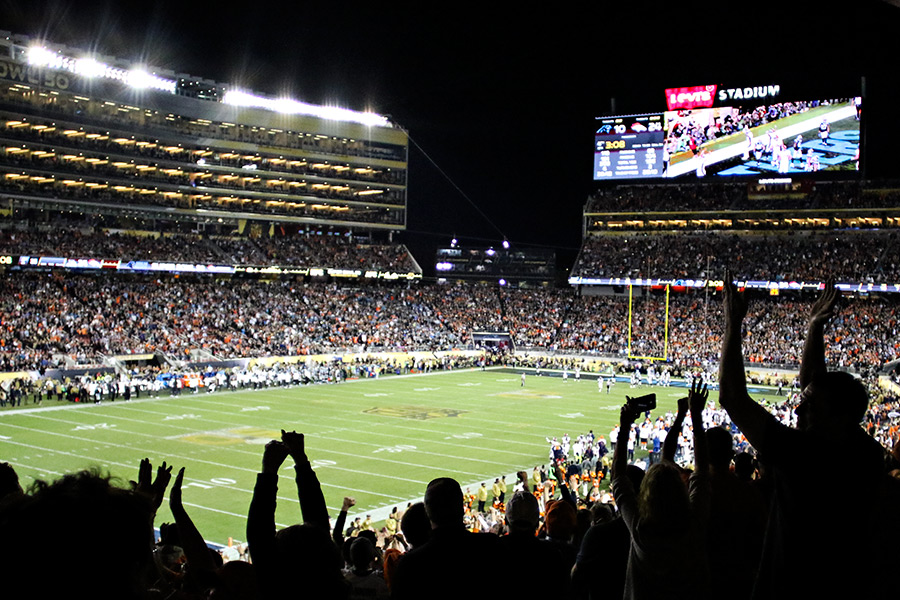Betting on Sports Wagering
Bills in the Montana Legislature could legalize sports betting in Montana after the federal government gives it the OK
By Molly Priddy
A pair of bills making their way through the 2019 Legislature could bring sports wagering to Montana after the U.S. Supreme Court struck down a ban on sports betting.
Senate Bill 330 and House Bill 725 both seek to legalize sports betting in Montana; SB 330 does this by creating the Montana Sports Betting Act with rules and regulations enforced by the state Department of Justice, and HB 725 outlines legal sports wagering as administered through the Montana Lottery.
Sen. Mark Blasdel, R-Kalispell, had a hand in crafting the bills after his work on the DOJ’s Gaming Advisory Council. They got to work after the U.S. Supreme Court reversed the ban on sports betting, he said.
“I like (SB 330) better as an option, but we’ve tried to take a position of we support both,” Blasdel said on April 8.
So far, both bills have proven to be popular in their respective chambers. HB 725 passed out of the House with an 88-10 vote, and was sent to the Senate Business, Labor, and Economic Affairs Committee, where it had a hearing scheduled for April 10.
SB 330 made it out of the Senate with a 36-14 vote, and onto the House Business and Labor Committee. There are some concerns about how or if debit cards should be used to pay in sports betting; HB 725 was amended to include language on limiting the daily withdrawal amount to the discretion of the lending institution providing the card.
“Credit gambling is against the law in Montana and nobody is trying to change that,” Blasdel said.
Jennifer McKee with the Montana Lottery said her agency believes it makes sense to administer sports betting, because the sports wagering would be an extension of the existing infrastructure already in place.
The lottery already has a secure licensing and distribution system, McKee said, and has locations throughout Montana.
“We’re already in every part of the state,” McKee said. “Because we are a state agency, it’s important for us to be everywhere, not just the big towns.”
As such, all of the lottery’s proceeds after operation costs go to the state’s general fund, until it hits $12.3 million. Once it reaches that cap, the proceeds go to STEM scholarships for Montana students seeking degrees at Montana schools.
McKee said the lottery made conservative estimates when considering how much money sports wagering would bring to Montana, using other states with sports betting as a comparison.
“We didn’t want to overpromise,” McKee said. “But by 2023, an estimated $4.6 million would go into STEM scholarships.”
The Senate’s version of the bill defines a sports event as professional, collegiate, and the Olympics, but otherwise wouldn’t be allowed for amateur sporting events. The House bill doesn’t have such parameters.
In HB 725, the apps would only work in certain proximity to the lottery’s wagering kiosks, and in SB 330, the wagering kiosks would be located at a gambling establishment and have the same geo-fencing around it for the apps.
McKee said the House bill would provide bigger commission payments for retailers; in 2018, the lottery paid out $3.2 million in retail commissions, mostly to Montana small businesses.
Sports wagering wouldn’t be offered at all of the lottery’s retail locations, McKee said, and those wanting to offer sports betting would need separate licensing.
Blasdel said if SB 330 is enacted, the Department of Justice Gambling Control Division would have about a year to get the rules set and machines tested, and McKee said if the Montana Lottery is put in charge of sports betting, they could have a limited roll out in six to eight months.
Blasdel said he believes his bill gives more flexibility because it doesn’t specifically name the Montana Lottery as the administrator, but that ultimately he supports both bills.
McKee said the Montana Lottery is ready to expand its services if the Legislature decides it so.
“We’re not involved in the decision where our money goes, we just want to create winning experiences in Montana,” McKee said. “If sports wagering comes to the Montana Lottery, we feel like we’re a natural fit to offer it.”